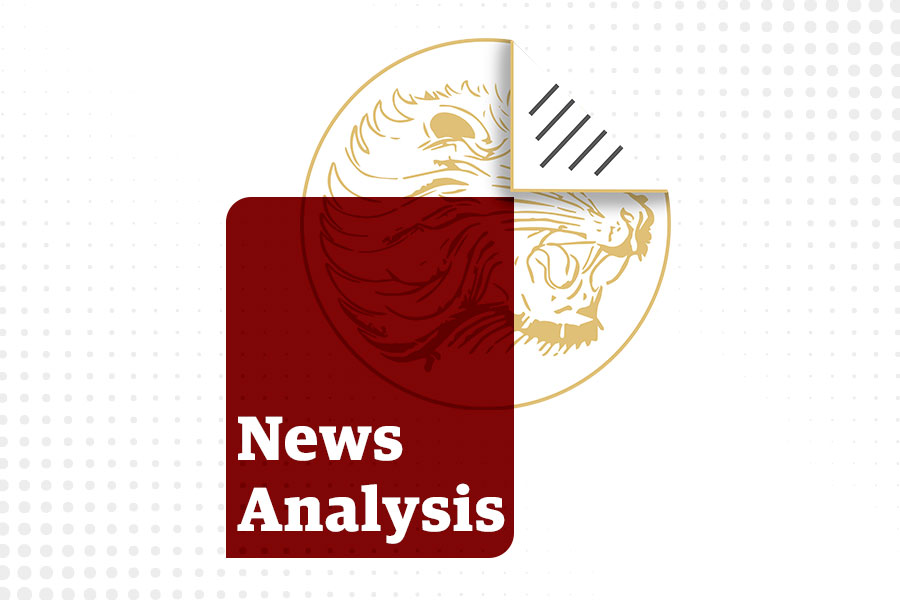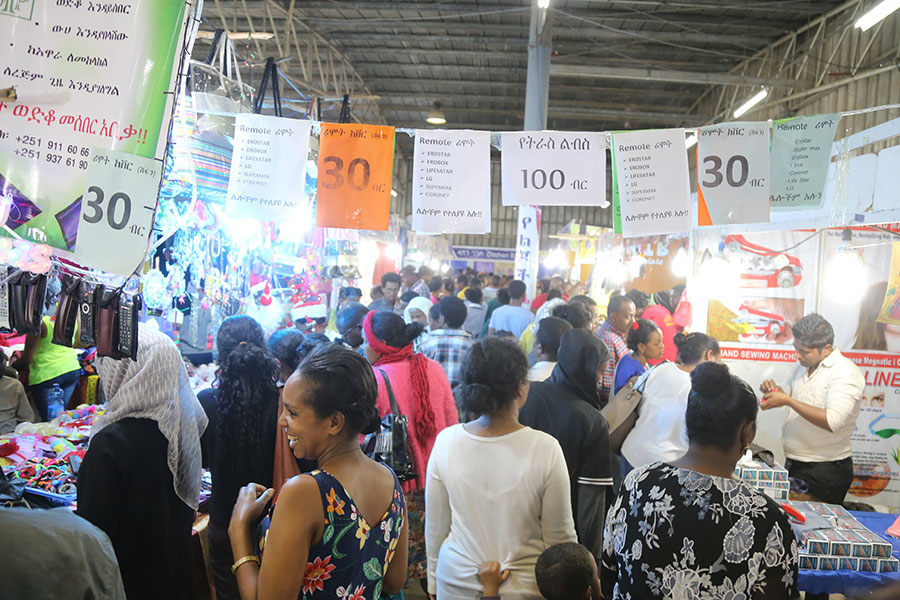
Commentaries | Mar 04,2023
Jan 29 , 2022
By Yehualashet Tamiru
The perfect economy, which market fundamentalists envisage, could exist under the ideal conditions. But the real world is full of uncertainty, conflict and crisis. Now, it is under the thumb of COVID-19, writes Yehualashet Tamiru Tegegn (yehuala5779@gmail.com), lawyer, consultant and researcher.
In his 1776 groundbreaking book, "An Inquiry into the Nature and Cause of the Wealth of Nations," Adam Smith argued that the free market benefits the whole society because an invisible hand guides decision-making.
“He generally, indeed, neither intends to promote the public interest nor knows how much he is promoting it," he wrote. "By preferring the support of domestic to that of foreign industry, he intends only his own security and by directing that industry in such a manner as its produce may be of the greatest value, he intends only his own gain and he is in this, as in many other cases, led by an invisible hand to promote an end which was no part of his intention.”
As compelling as it sounds, this is not always the case. As both the consumers and the producers are market-dependent, there is inevitable competition between producers to make their profits as high as possible by cutting the price first and then increasing it later after creating market dominance.
They could do this either by increasing the surplus-value, which is no longer possible because of maximum hours legal limitation, or using relative surplus-value, increasing intensity, productivity and diminishing wage. COVID-19 has come out as an exhibit of the fault in capitalism.
The pandemic has exposed the flaws of capitalism at least in three ways: inequality between the wage earner and capitalists; monopoly of the market by big firms; and the unemployment rate.
In political-economy, the meaning of “class” has a different conceptual framework than its mainstream understanding. It is not the difference of income between persons rather the source of income. For the working class, the only source of income is wage, which is paid for using labour. Whereas, for capitalists, their main source of income is profit, which in turn is the result of surplus value of labour. Such 10 capitalists in the present time have seen their net worth double to 1.5 trillion dollars since the beginning of the pandemic.
In contrast, the working class is a slave to their wages. Karl Marx, political scientist who put forward the most recognisable argument against capitalism, put it elegantly.
In a perfect world, we should be able “to hunt in the morning, fish in the afternoon, rear cattle in the evening, criticise after dinner,” however, the invisible hand of economic coercion pushed the working force to trade their sovereignty over time for wages.
While the capitalist enjoys the benefit of profit from their activities, the working class still runs the risk of falling below the poverty line. For instance, in a survey conducted by the US Census Bureau, around 38.1 million people in the labour force are designated as working poor. On the other hand, the top one percent of Americans, for instance, has 16 times more wealth than the bottom half. As per the World Inequality report, as the profit of rich people increases, over 100 million people will join the infamous club of extreme poverty. Jeff Bezos could, for instance, pay each employee of Amazon more than a 100,000 dollar bonus and be as wealthy as he was before the pandemic.
The perfect economy, which market fundamentalists envisage, could exist under the ideal conditions. But the real world is full of uncertainty, conflict and crisis. The big firms dominate small firms by undercutting the price in their market. This is possible by using their excess capital to survive for longer in an underpriced market than small competitors can afford. The big firms will either swallow the small firms through the mechanisms of merger and acquisition or will kick them out of the market. This, in turn, brings concentration and centralisation of power by the prominent capitalists.
This real competition has a huge impact especially in times of crisis. Since the big firms have easy access to credit and accumulated capital, they can resist testing times. However, the impact on the small firms is tremendous. The COVID-19 pandemic, as tragic as it has been for small businesses and the general public, is equally a blessing in disguise for top capitalists.
A joint poll released by the US Chamber of Commerce and MetLife says that one in four small businesses are at risk of permanently closing forever due to COVID-induced economic meltdown. On the other hand, the top 25 richest people in the world have increased their profit by an overwhelming amount.
For mainstream economists, unemployment is the result of the failure of the person rather than the system. There is unemployment because labourers are seeking prices higher than the market equilibrium and, hence, the only remedy is to make the labour market more flexible. For instance, Michael Strain, economist, made the same case in a paper titled, "The link Between Wages and Productivity is Strong."
“It is most useful to think of wages as being determined by a combination of competitive market forces, bargaining power, and institutions. Worker productivity is the baseline for which wages are determined,” he wrote.
However, the existing unemployment is the result of systemic failure, not lack of productivity. Unemployment is a twin evil in two senses: the result of and the necessary requirement for the capitalist to exist. Unemployment is the result of capital accumulation. For the capitalist to become more profitable, they invest in the constant capital and decrease the variable labour, resulting in unemployment. It is reported that during the pandemic, many profitable firms have put substantial labour out of the working force and used the profit they generated to increase shareholder dividends.
COVID-19 is a pandemic that took the lives of many of our beloved and left survivors in a desperate and miserable condition. But do not tell this to rich people as life in their orbit has been smooth sailing over the past two years.
PUBLISHED ON
Jan 29,2022 [ VOL
22 , NO
1135]

Commentaries | Mar 04,2023

Fortune News | Sep 02,2023

News Analysis | Oct 30,2021

Radar | Sep 19,2020

Viewpoints | Mar 06,2021

Fortune News | Apr 24,2021

Fortune News | Aug 14,2021

Featured | Jan 05,2019

Featured | Dec 28,2019

Sunday with Eden | Dec 04,2021

Photo Gallery | 180281 Views | May 06,2019

Photo Gallery | 170478 Views | Apr 26,2019

Photo Gallery | 161508 Views | Oct 06,2021

My Opinion | 137269 Views | Aug 14,2021

Dec 22 , 2024 . By TIZITA SHEWAFERAW
Charged with transforming colossal state-owned enterprises into modern and competitiv...

Aug 18 , 2024 . By AKSAH ITALO
Although predictable Yonas Zerihun's job in the ride-hailing service is not immune to...

Jul 28 , 2024 . By TIZITA SHEWAFERAW
Unhabitual, perhaps too many, Samuel Gebreyohannes, 38, used to occasionally enjoy a couple of beers at breakfast. However, he recently swit...

Jul 13 , 2024 . By AKSAH ITALO
Investors who rely on tractors, trucks, and field vehicles for commuting, transporting commodities, and f...

Nov 1 , 2025
The National Bank of Ethiopia (NBE) issued a statement two weeks ago that appeared to...

Oct 25 , 2025
The regulatory machinery is on overdrive. In only two years, no fewer than 35 new pro...

Oct 18 , 2025
The political establishment, notably the ruling party and its top brass, has become p...

Oct 11 , 2025
Ladislas Farago, a roving Associated Press (AP) correspondent, arrived in Ethiopia in...

Nov 2 , 2025
The National Bank of Ethiopia (NBE) has scrapped the credit-growth ceiling that had s...

Nov 2 , 2025 . By SURAFEL MULUGETA
The burgeoning data mining industry is struggling with mounting concerns following th...

Nov 2 , 2025 . By YITBAREK GETACHEW
Berhan Bank has chosen a different route in its pursuit of a new headquarters, opting for a transitional building instea...

Nov 2 , 2025 . By BEZAWIT HULUAGER
Nib International Bank S.C. has found itself at the epicentre of a severe governance...